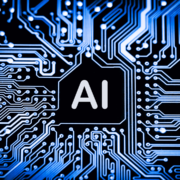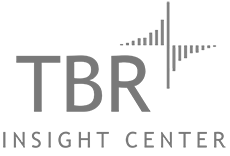2024: A Transitional Year for GenAI and PC Markets
PC vendors are embracing the AI PC in hopes that this new offering will propel a vigorous recovery from the recent post-pandemic slump in PC sales. There are, however, only a few unexciting current AI applications that take advantage of the new AI hardware. Compelling applications that rely on PC and smartphone hardware will become available starting in 2025.
The Current State of AI Use in Devices
Currently, both PCs and smartphones provide access to cloud-based generative (GenAI) applications, primarily through browsers but also including some application integration in programs like Microsoft Copilot and Adobe Photoshop. Some machine learning (ML) functions, such as computational photography on smartphones and background blurring and noise filtering on PCs, are also performed on devices.
TBR Senior Analyst Ben Carbonneau discusses trend expectations for the Devices industry in 2024 and how TBR’s research will address market activity in the coming year. Click the image below to watch the full video now!
2024: GenAI and PCs at a Pivotal Crossroad
As TBR analyzes the devices market for both individual vendor coverage and semiannual benchmarks, we expect the following impacts this year:
The AI PC Will Generate Interest but Will Not Greatly Affect Sales in 2024
Microsoft and the PC vendors are promoting AI PCs, which are equipped with neural processing unit (NPU) capabilities. Microsoft is adding NPU-powered video background blurring to Windows 11, but currently there are few other applications where NPUs help.
The AI PC Will Drive Conversations Between Customers and OEMs
The rapid evolution of GenAI is disruptive everywhere, and that includes PC customers who want to know what devices to buy for which employees at what time. This is an opportunity for deeper relationships among OEMs, customers and the channel.
Privacy Will be an Important Issue, Starting in 2024
One of the promises of GenAI is better management of private information like emails, messages and even voice conversations. These applications require absolute privacy. They must run and learn locally, on the device. Apple’s reputation for privacy will help the company here.
Conclusion
In 2024 the introduction of AI PCs by Microsoft and PC vendors, featuring NPU capabilities, has generated interest but is not anticipated to significantly boost sales. While Microsoft is incorporating NPU-powered features like video background blurring into Windows 11, applications for NPUs currently remain limited. However, the emergence of AI PCs has sparked discussions between customers and OEMs, paving the way for deeper relationships within the industry.
As GenAI continues to evolve rapidly, privacy concerns have become increasingly important, particularly regarding the handling of sensitive information such as emails and text messages. The demand for absolute privacy necessitates that AI applications run and learn locally on the customer’s device, a trend in which Apple’s strong reputation for privacy may play a significant role.

 Getty Images via Canva Pro
Getty Images via Canva Pro
 themacx from Getty Images Signature
themacx from Getty Images Signature